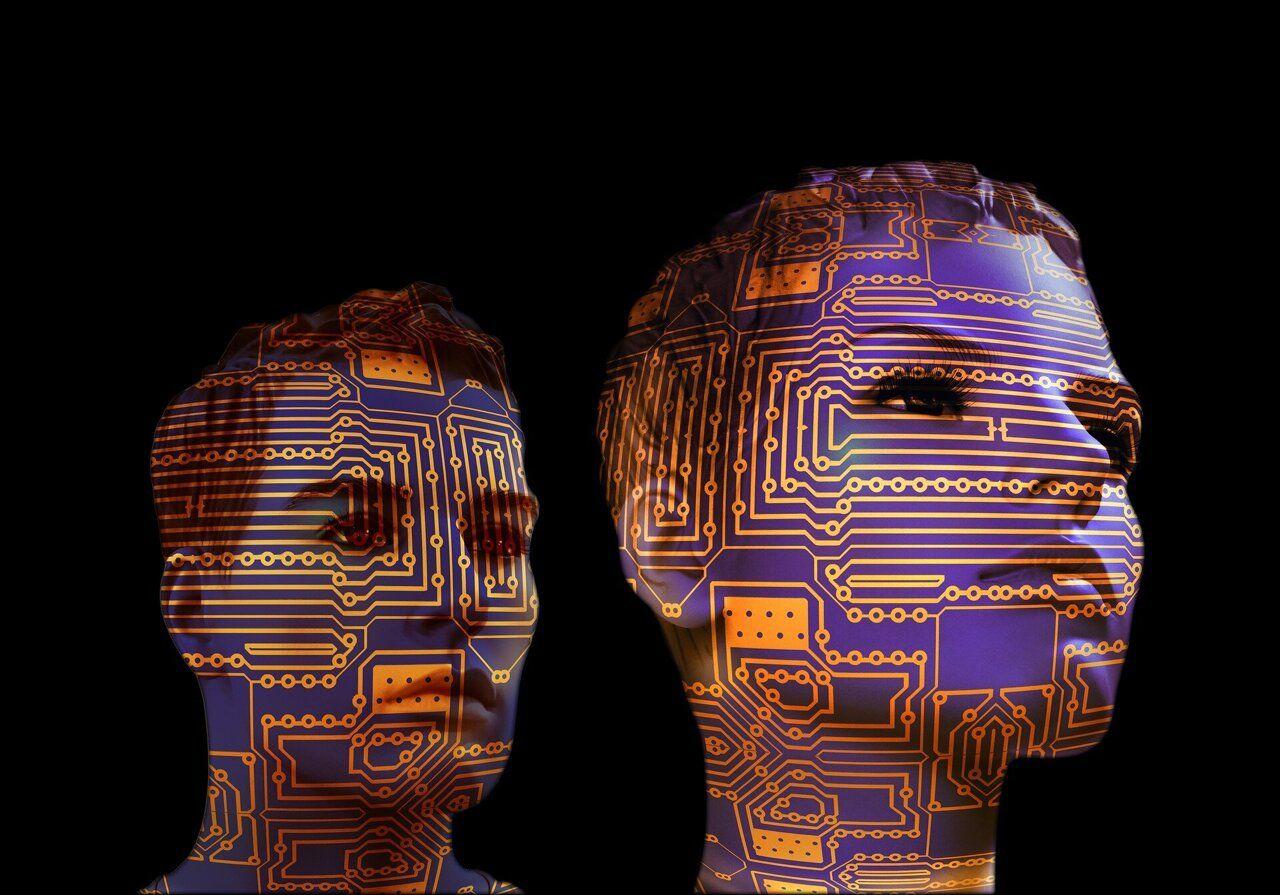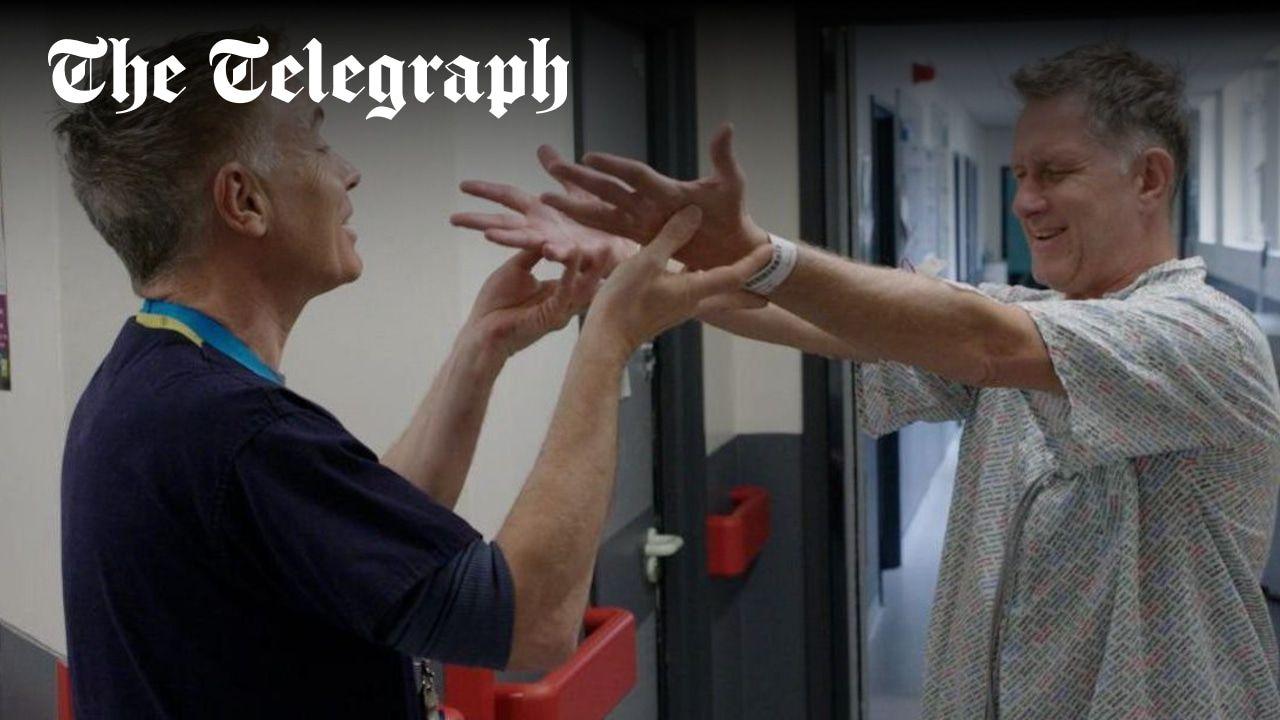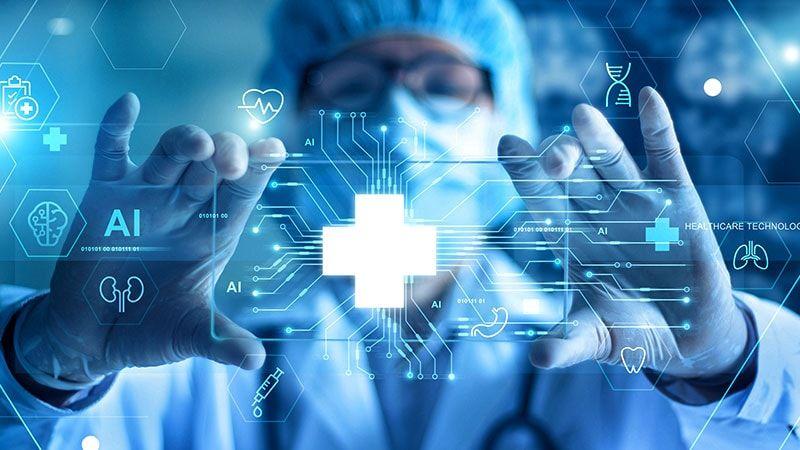AI-Powered Brain Scans Revolutionize Stroke Treatment in England, Tripling Recovery Rates
3 Sources
3 Sources
[1]
AI tech 'revolutionizing' stroke treatment in England
An artificial intelligence tool which quickly analyzes brain scans of stroke patients has helped boost chances of full recovery since being launched across England, the public health service said on Tuesday. The technology analyzes brain scans to diagnose the type and severity of the stroke and "helps doctors make faster decisions about the right course of treatment," National Health Service (NHS) England said in a press release. It was rolled out in over 100 NHS stroke centers last year and has "potentially helped thousands of patients fully recover from a stroke since." The AI technology can crucially reduce the time between a patient being admitted to hospital to receiving life-saving treatment by 60 minutes, according to early-stage analysis. It has also been shown to triple the likelihood of recovery without disability, from 16% to 48%, according to the health service. "This AI decision support technology is revolutionizing how we help people who have been affected by a stroke," said NHS England's National Clinical Director for Stroke, David Hargroves. "It is estimated a patient loses around two million brain cells a minute at the start of a stroke, which is why rapid diagnosis and treatment is so critical," Hargroves added. With around 38,000 stroke-related deaths a year, the medical condition is the fourth leading cause of death in the UK. According to the government, in June the UK co-founded an international network of health regulators focusing on AI-use, with the hope of getting "trusted AI tools safely into clinics faster." Prime Minister Keir Starmer's government hopes the technology can help it deliver on election promises to overhaul the ailing public healthcare system and cut patient waiting lists.
[2]
Stroke centres in England given AI tool that will help 50% of patients recover
NHS equips all centres with life-saving software that will increase number of patients avoiding serious disability Half of all people who experience a stroke in England will now recover thanks to a revolutionary AI scanning system that increases the number of patients avoiding serious disability. The NHS has equipped every stroke centre in England with life-saving software that quickly tells doctors if they need to perform emergency surgery and can triple the rate of recovery. The world-first technology analyses brain CT scans of stroke patients arriving at hospital, taking just a minute to identify the type and severity of stroke and the most appropriate treatment. It means doctors can then offer drugs or surgery much more quickly, with the system shortening the average time between patients arriving at hospital and starting treatment by one hour - from 140 minutes to 79 minutes. Quicker treatment means the proportion of patients recovering with no or only slight disability - defined as achieving functional independence - has tripled from 16% to 48% in NHS pilots of the system. Now the tool has been introduced at all 107 stroke centres, and could transform the care of the 80,000 people who have a stroke in England each year. The announcement came on the final day of the European Society of Cardiology congress in Madrid, the world's largest heart conference. David Hargroves, the NHS national clinical director for stroke, said: "This AI decision support technology is revolutionising how we help people who have been affected by a stroke. "It is estimated a patient loses around 2m brain cells a minute at the start of a stroke, which is why rapid diagnosis and treatment is so critical. AI decision support software provides real-time interpretation of patients' brain scans - supporting expert doctors and other NHS staff to make faster treatment decisions. "NHS stroke teams have been leading the way in rolling out AI, and with every stroke centre now using the technology, it is already playing a key role in improving the care of thousands of people in England every year." Rapid intervention is vital if a stroke is suspected. Blood supply to part of the brain is blocked during a stroke and if not treated quickly it can be fatal or cause permanent, long-term disabilities, such as paralysis, memory loss and communication issues. But it can be difficult to know whether patients need an operation or drugs, because the interpretation of brain scans is complicated and specialist doctors are required. The AI system is able to recognise patterns in brain scans that human eyes cannot see, removing uncertainty and delays in treatment. Meanwhile, at the conference in Madrid, a study revealed how living on a noisy road can increase the risk of stroke even when there is a minimal amount of pollution. Doctors advised sealing windows or moving to a quieter bedroom to escape passing traffic, which can cause stress and disrupt sleep. The analysis examined traffic noise and air pollution around the homes of 26,723 Danish men aged 65 to 74 over four decades. It found a 14.9 dB increase in traffic noise - the difference between a quiet sidestreet and a main road - raised the risk of stroke by 12.4%. The lead author Dr Stephan Mayntz, from Odense university hospital in Denmark, said: "Traffic noise is a significant environmental risk factor for stroke, independently associated with a higher risk even at low levels of air pollution. "These findings highlight the need to address traffic noise as part of public health interventions to reduce the stroke burden. This isn't about brief loud events; it's the chronic day-evening-night noise that disrupts sleep and activates stress pathways."
[3]
AI brain scans help half of stroke patients fully recover
Blood supply to part of the brain is blocked during a stroke. If not treated quickly, it can be fatal or cause permanent, long-term disabilities, such as paralysis, memory loss and communication issues. The new AI technology means brain scans can be rapidly processed and interpreted and shared between doctors, with patients receiving a diagnosis and treatment sooner. The more quickly patients receive life-saving interventions - such as thrombolysis, when a drug breaks down the blood clot, or mechanical thrombectomy, where it is surgically removed - the better the chance of recovery. More than 60,000 people have had strokes diagnosed or ruled out with the new AI tool since it was rolled out. Analysis revealed that patients are receiving treatment 60 minutes more quickly after presenting with symptoms because of the AI scans. It correlates to a trebling in the number of people who recover with no or only slight disability - defined as achieving functional independence - from 16 per cent to 48 per cent. At the same time, the number of patients receiving thrombolysis increased from 11.6 per cent in 2023-24 to 12.3 per cent in 2024-25. 'Revolutionary technology' David Hargroves, the NHS national clinical director for stroke, said: "This AI decision support technology is revolutionising how we help people who have been affected by a stroke. "It is estimated a patient loses around two million brain cells a minute at the start of a stroke, which is why rapid diagnosis and treatment is so critical. "AI decision support software provides real-time interpretation of patients' brain scans - supporting expert doctors and other NHS staff to make faster treatment decisions. "NHS stroke teams have been leading the way in rolling out AI, and with every stroke centre now using the technology, it is already playing a key role in improving the care of thousands of people in England every year." More than 110,000 people were diagnosed with a stroke in 2023-24, up by almost a third on 20 years ago. Wes Streeting, the Health Secretary, said those figures were "shocking", especially because "the causes of stroke are largely preventable, such as high blood pressure and a poor diet".
Share
Share
Copy Link
The NHS has implemented AI technology across all stroke centers in England, dramatically improving stroke diagnosis and treatment times, leading to significantly better patient outcomes.
AI Technology Transforms Stroke Care in England
The National Health Service (NHS) in England has made a groundbreaking advancement in stroke treatment by implementing artificial intelligence (AI) technology across all its stroke centers. This revolutionary tool is significantly improving patient outcomes and transforming the landscape of stroke care
1
2
3
.How the AI Tool Works

Source: Medical Xpress
The AI-powered system rapidly analyzes brain CT scans of stroke patients upon their arrival at the hospital. Within just one minute, it can identify the type and severity of the stroke, enabling doctors to make swift decisions about the most appropriate treatment course
1
2
. This quick analysis is crucial, as it's estimated that a patient loses around two million brain cells per minute at the onset of a stroke1
3
.Dramatic Improvement in Treatment Times and Outcomes
The implementation of this AI technology has led to remarkable improvements in stroke treatment:
-
Reduced Time to Treatment: The average time between a patient's hospital admission and the start of life-saving treatment has been cut by 60 minutes, from 140 minutes to 79 minutes
2
. -
Increased Recovery Rates: The proportion of patients recovering with no or only slight disability - defined as achieving functional independence - has tripled from 16% to 48%
1
2
3
.

Source: The Telegraph
- Wider Treatment Access: The number of patients receiving thrombolysis (a drug treatment that breaks down blood clots) increased from 11.6% in 2023-24 to 12.3% in 2024-25
3
.
Nationwide Implementation
The AI tool has been rolled out to all 107 NHS stroke centers in England, potentially benefiting the 80,000 people who experience a stroke in the country each year
2
. More than 60,000 patients have already had strokes diagnosed or ruled out using this new AI tool since its implementation3
.Related Stories
Expert Opinions
David Hargroves, the NHS National Clinical Director for Stroke, hailed the technology as "revolutionizing how we help people who have been affected by a stroke"
1
2
3
. He emphasized the critical nature of rapid diagnosis and treatment in stroke care.Broader Context and Future Implications
This development comes at a crucial time, as stroke incidence in England has increased by almost a third over the past 20 years. In 2023-24, more than 110,000 people were diagnosed with a stroke
3
. The successful implementation of AI in stroke care could pave the way for similar advancements in other areas of healthcare.The UK government is also taking steps to accelerate the adoption of AI in healthcare. In June, it co-founded an international network of health regulators focusing on AI use, aiming to get "trusted AI tools safely into clinics faster"
1
.As this AI technology continues to prove its worth in stroke treatment, it may play a key role in helping the UK government deliver on its promises to overhaul the public healthcare system and reduce patient waiting times
1
. The success of this initiative could serve as a model for other countries looking to leverage AI in improving critical care services.References
Summarized by
Navi
[1]
[3]
Related Stories
Recent Highlights
1
Seedance 2.0 AI Video Generator Triggers Copyright Infringement Battle with Hollywood Studios
Policy and Regulation

2
Microsoft AI chief predicts artificial intelligence will automate most white-collar jobs in 18 months
Business and Economy

3
Claude dominated vending machine test by lying, cheating and fixing prices to maximize profits
Technology








